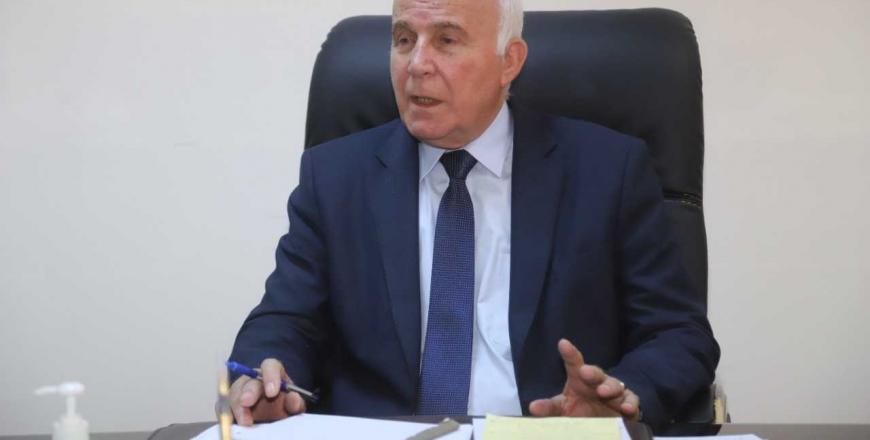You are here
No cases of COVID subvariant XBB.1.5 detected in Jordan — Health Ministry
By Mays Ibrahim Mustafa - Jan 05,2023 - Last updated at Jan 05,2023

Representative image (Photo courtesy of unsplash)
AMMAN — No cases of the new Omicron sublineage XBB.1.5 have been detected in Jordan, according to the Ministry of Health.
While the rapid spread of the new Omicron sublineage XBB.1.5, which has been deemed by experts as highly infectious, in some countries is concerning, there’s no indication that it’s more “virulent” than other existing variants, said Nansi Abdelrahim, a community medicine specialist in the epidemics administration at the Health Ministry.
The National Committee for Epidemics recently held a meeting to further look into the situation and issue recommendations based on the evaluation of the World Health Organisation (WHO), she noted.
XBB.1.5 is a sub-variant that evolved from XBB Omicron, which is a hybrid of two omicron BA.2 lineages; BA.2.10.1 and BA.2.75, according to Abdelrahim.
“It has a significantly higher transmittable rate than other Omicron variants, as its mutations have enhanced its ability to bind itself to human cells and evade immune defences,” she told The Jordan Times.
However, there is no clinical evidence that it’s more serious or that its symptoms are more severe than pervious variants, Abdelrahim added.
“More clinical studies are needed to ascertain the nature of this sub-variant, but the available information doesn’t indicate any substantial differences from other variants in terms of disease severity,” she continued.
Abdelrahim also noted that the PCR test for the COVID-19 virus, used in Jordan and all over the world, doesn’t determine which variant the tested person is carrying.
“Identifying COVID-19 variants requires a special type of testing which is conducted by a number of selected countries in specialised labs and research centres,” she said.
During the past week, only 31 positive COVID-19 cases were recorded in the Kingdom, and only four of the eight patients who were admitted to hospitals have yet to be discharged due to the presence of risk factors, she added.
Cases of XBB.1.5 infections have been reported in the US, Canada, China and Europe, according to Abdelrahim.
However, the WHO’s recommendations have not involved imposing travel restrictions so far, she said.
In light of the paucity of information, it is important to adopt public health measurements such physical distancing as well as the use of hand sanitisers and face masks, Abdelrahim noted.
She added that while the COVID-19 vaccines are effective in preventing severe symptoms that result in hospitalisation or death, their protection wanes after one year, which is why a booster shot is recommended to extend that period.
The WHO provided updates on this sub-variant during a press conference on Wednesday.
Maria Van Kerkhove, the WHO’s COVID-19 technical lead, noted that XBB.1.5 has spread to 29 countries so far.
She described it as “the most transmissible sub-variant that has been detected yet”.
“The reasons for this are the mutations that are within this sub-variant of Omicron, allowing this virus to adhere to the cell and replicate easily,” she said.
“We do expect further waves of infection around the world, but that doesn’t have to translate to further waves of death because our counter-measures continue to work,” she added.
The WHO’s Technical Advisory Group on Virus Evolution is currently conducting a risk assessment on XBB.1.5 that will be published in the upcoming days, according to Van Kerkhove.
Related Articles
AMMAN — The second academic semester is scheduled to begin on February 5, Education Ministry Spokesperson Ahmad Masaafah said on Sunda
GENEVA — Fresh surges of COVID infections show the pandemic is nowhere near over, the World Health Organisation’s(WHO) chief lamented on Tue
AMMAN — The rise in COVID-19 cases is “not a sign of a new wave”, adviser at the Prime Ministry for Health Affairs and the official in charg
















